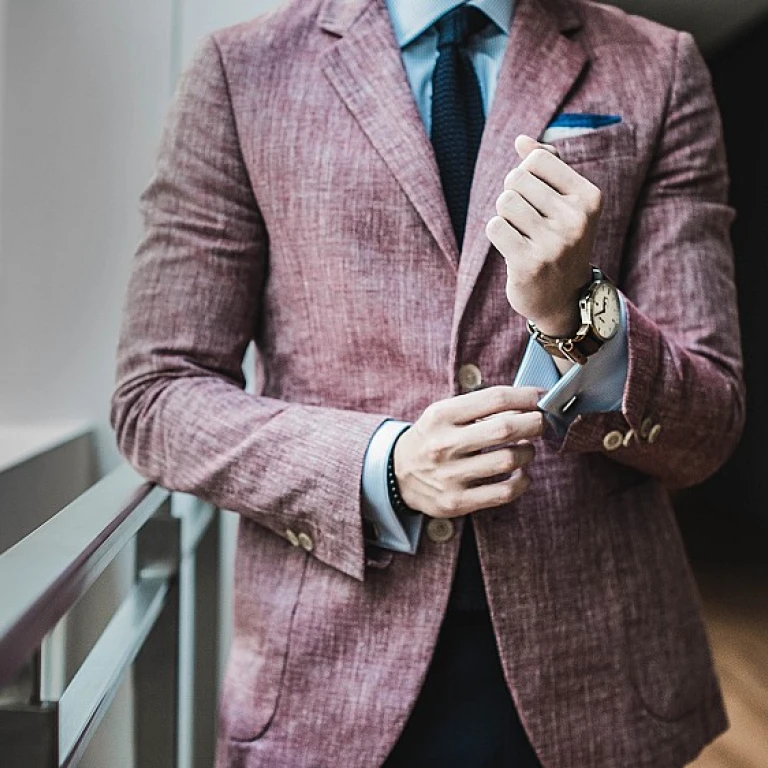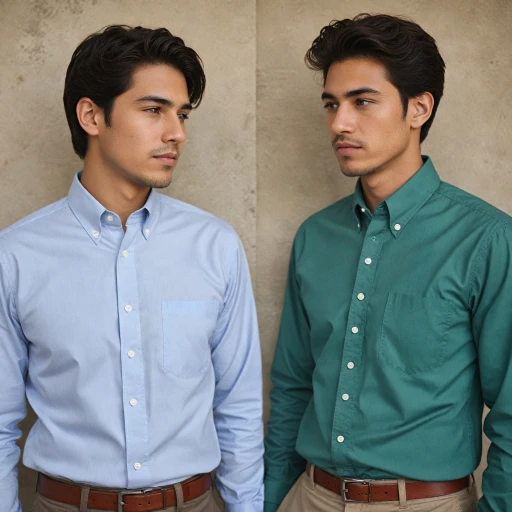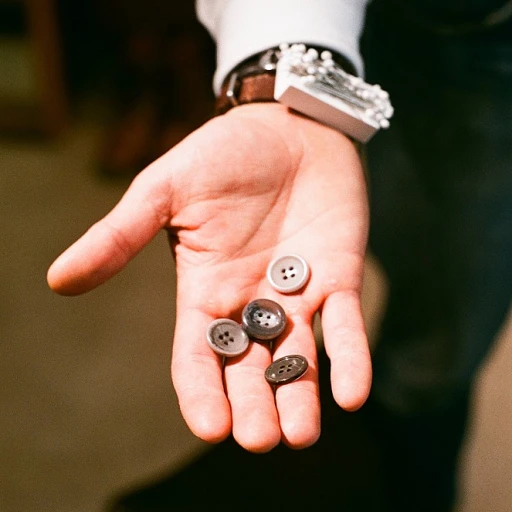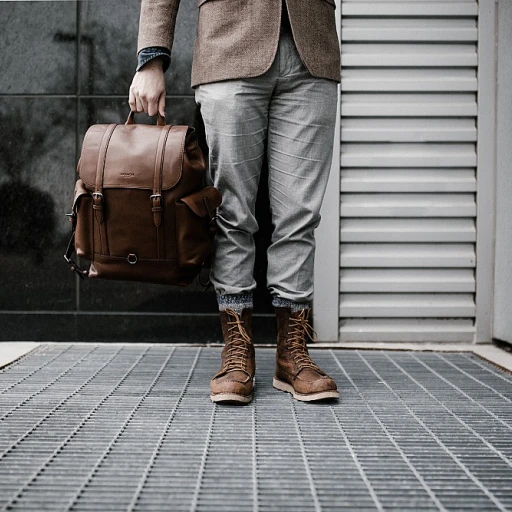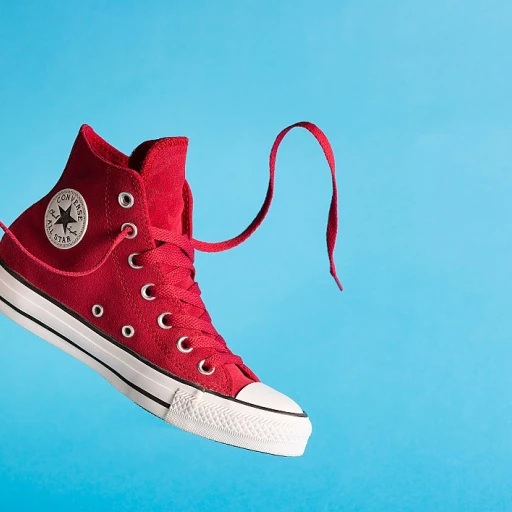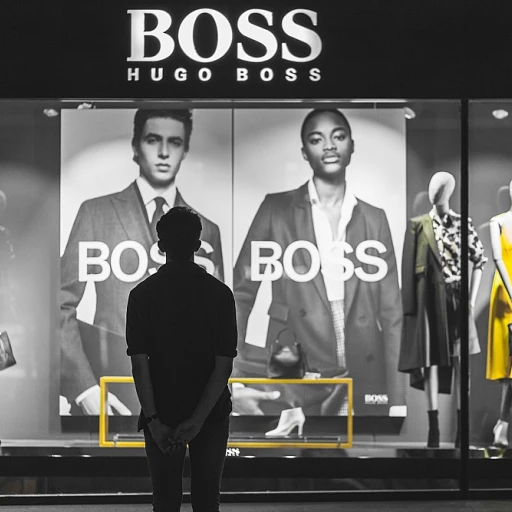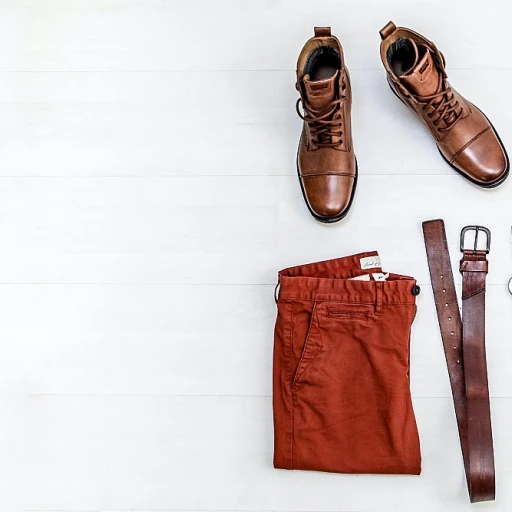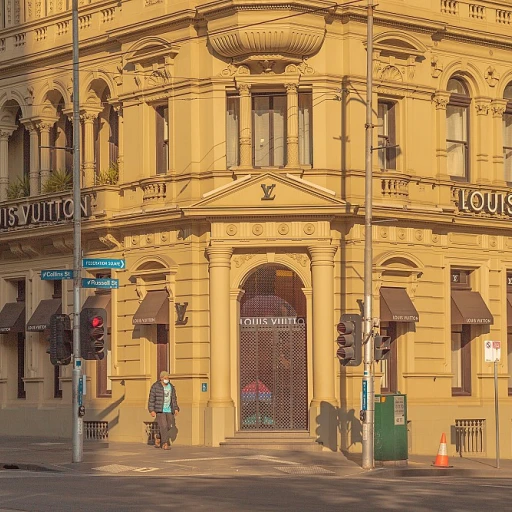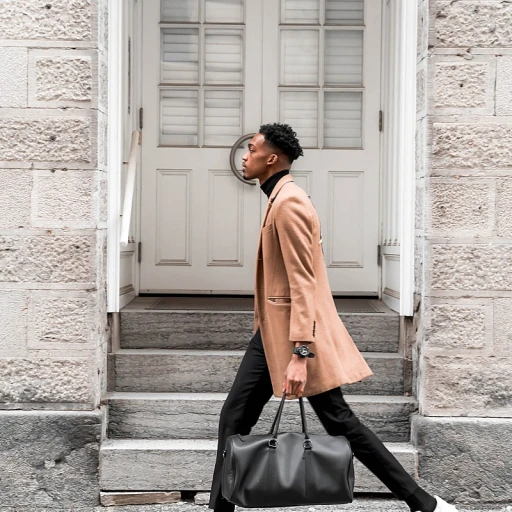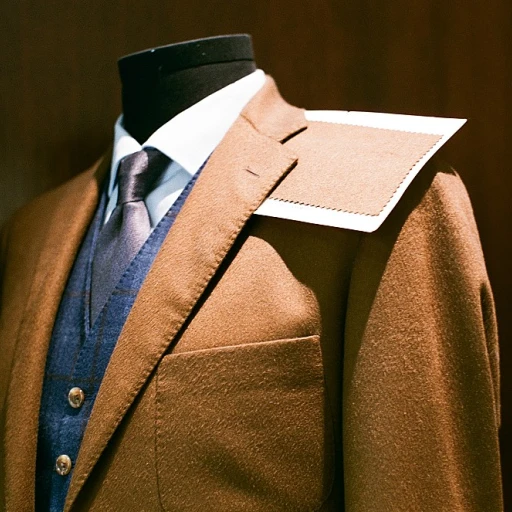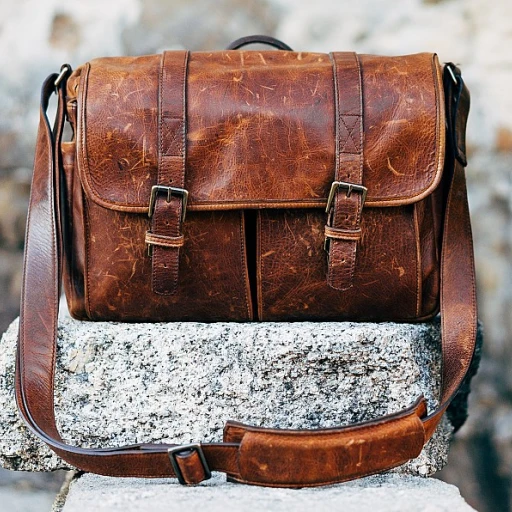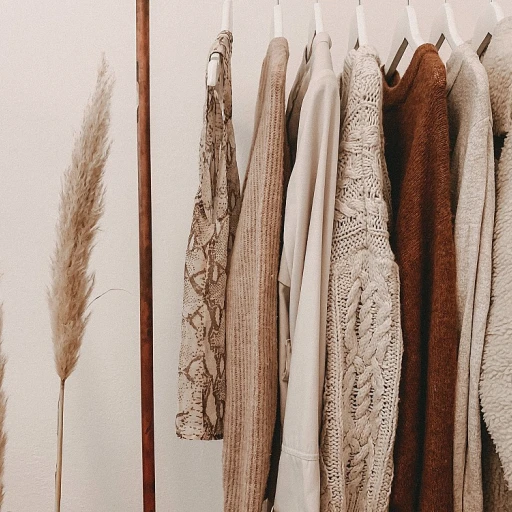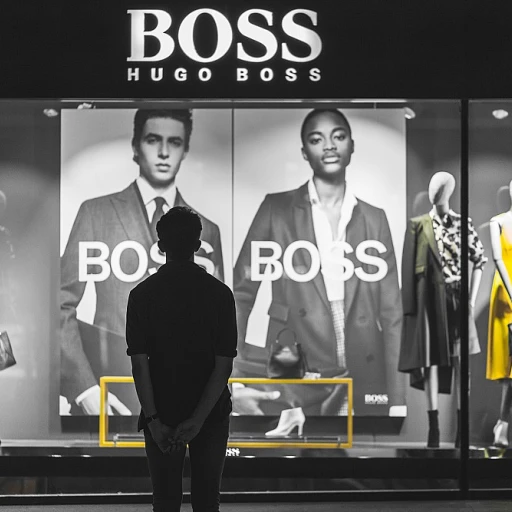
The Importance of Appearance in the Legal Profession
The Role of Appearance in Legal Settings
In the legal profession, appearance is more than just a matter of personal style; it is a crucial component of a lawyer's professional identity. The way lawyers dress can significantly impact how they are perceived by clients, colleagues, and the court. A well-fitted suit is often seen as a symbol of competence and authority, which is why many lawyers opt for tailored suits over off-the-rack options. The choice between a tuxedo and a suit can also reflect the level of formality required in different legal settings.
Law firms often have strict dress codes that emphasize the importance of wearing suits that convey professionalism. A navy blue or charcoal gray suit, paired with a crisp white dress shirt and a conservative tie, is considered the gold standard in many legal circles. This classic combination not only looks good but also adheres to the traditional expectations of the legal field.
For those in the legal profession, investing in a bespoke suit can be a strategic decision. Bespoke suits offer a perfect fit and allow lawyers to express their personal style while maintaining the decorum expected in court. While the cost of a bespoke suit may be higher, the investment can pay off in terms of confidence and the impression made on others.
Beyond the suit itself, accessories like dress shoes and ties play a vital role in completing the professional look. A well-chosen tie or a pair of polished dress shoes can elevate a lawyer's appearance, making them stand out in a competitive environment. As fashion trends evolve, lawyers must balance personal style with the expectations of their profession, ensuring they present the best version of themselves in every legal setting.
Tailored vs. Off-the-Rack: What Do Lawyers Choose?
How Professionals in Law Decide Between Custom and Standard Attire
In the world of law, where first impressions hold significant weight, what a lawyer wears can speak volumes. So, when it comes to choosing between tailored suits and off-the-rack options, the decision is not straightforward. Both have their merits, yet tailored suits often stand out for specific reasons.
The essence of a bespoke suit lies in its fit. Law professionals often opt for this personalized approach, as it offers a silhouette that aligns perfectly with their body shape. When the stakes are high, and a courtroom presence must exude authority, tailored suits ensure that seams and lengths are exactly right, providing an impeccable look that stays in place.
Off-the-rack suits, while convenient, might not provide the same level of precision. However, they do offer versatility and quicker access, particularly appealing for those balancing demanding schedules in law firms. Despite this convenience, a bespoke suit remains unmatched in delivering a style that feels tailored to the individual’s personal brand, which is paramount in high-stakes legal scenarios.
Interestingly, color and cut play pivotal roles too. While navy blue or charcoal suits are wardrobe mainstays for their neutrality and professionalism, a well-tailored piece can successfully incorporate subtle variations like light blue or single-breasted designs, crafting a unique ensemble without detracting from the decorum expected in the legal space.
Overall, whether for court appearances or business casual environments within law firms, lawyers weigh these options meticulously. The fit, the ability to convey professionalism consistently, and adhering to a dress code all influence their choice in attire.
The Process of Getting a Tailored Suit
Embracing the Craft of Bespoke Tailoring
For many lawyers, the idea of acquiring a bespoke suit can feel like both an art and a science. It is a deeply personal process that offers benefits beyond the norm of off-the-rack options. Understanding the mechanics of bespoke tailoring can reveal why it's favored in the legal sphere:- Precision Fit: The primary draw for many is the exceptional fit. Unlike mass-produced suits, bespoke ones are crafted to the unique dimensions of the wearer's body. This precise fitting is essential for a lawyer striving to project authority and competence in court.
- Visitations and Consultations: The journey begins with a series of meticulous measurements. Tailors will often conduct detailed consultations to understand the client's preferences, ensuring the suit complements their personal style as well as adheres to traditional practices, such as choosing between a classic navy or sophisticated light blue.
- Selection of Fabrics: Those opting for bespoke have the luxury of choosing from an array of high-quality fabrics. Whether it’s the timeless elegance of navy blue or a bold approach with double-breasted suits, clients have the chance to curate a wardrobe that stands the test of time and fashion trends.
- Final Fittings: The process is iterative, sometimes requiring multiple fittings to ensure the suit hugs the frame impeccably—highlighting every asset while minimizing lesser favored aspects.
- Personalization: From choosing the cut and number of buttons in a single or double-breasted style to customizing inner linings and even the smallest details like cuffs and lapels, bespoke suits offer endless options for personal flair. This level of customization supports an individual’s professional persona and dress code requirements in the law firm environment.
Cost Considerations: Are Tailored Suits Worth the Investment?
Evaluating the Investment in Bespoke Suits
In the legal profession, where appearance is crucial, the question of whether tailored suits are worth the investment comes to the forefront. The bespoke suit is tailored to fit the individual’s precise measurements, ensuring a perfect fit that off-the-rack suits often fail to provide. This impeccable fit is crucial when lawyers need to present themselves at their best, whether arguing in court or engaging with clients at law firms.
Tailored suits offer some distinct advantages over their off-the-rack counterparts in terms of style and fit. A bespoke suit can be customized down to the smallest details, such as the lapel style—whether opting for single or double breasted—as well as the choice of fabric and color, from classic navy blue to more contemporary tones like light blue. This level of personalization not only aligns with the professional dress code required in law but also allows lawyers to express individual style within those boundaries.
The cost of bespoke suits is usually higher than that of off-the-rack options, primarily due to the craftsmanship and personalized service involved. However, when considering wear longevity and the confidence a perfect fit can instill, many lawyers find the investment justifiable. In many cases, the expense of a high-quality bespoke suit is amortized over years of use, making it a worthwhile addition to any lawyer's wardrobe, especially for those frequenting high-stakes environments like the courtroom.
Ultimately, while the financial outlay for a tailored suit may seem significant, the blend of professional image enhancement and personal comfort often persuades lawyers to prioritize bespoke suits over less expensive alternatives. Notably, the price tag includes more than just the fabric; it encompasses the precision of fit, the choice of personalized elements—down to the dress shirt and tie coordination—and the confidence that comes from knowing you are dressed in the best possible manner to represent yourself and your law firm.
Fashion Trends in the Legal World
Current Influences on Professional Attire
In today's legal world, fashion trends play a significant role in determining how lawyers dress both in and out of court. The classic navy suit continues to dominate, often paired with a crisp white dress shirt and an understated tie, embodying a sense of reliability and authority. However, contemporary influences have brought slight shifts to this formal dress code. While the quintessential single-breasted suit remains a staple, there's a growing acceptance of the double-breasted suit, which adds a touch of old-school sophistication. Furthermore, subtle variations in color, like light blue or charcoal grey, have become popular choices, offering a modern twist while still maintaining professionalism. The focus on fit has become paramount, with lawyers increasingly opting for bespoke suits that offer a customized fit and flair. Bespoke suits aren't just about perfect measurements; they allow for personalized details that reflect individual style. The demand for bespoke suit elegance speaks to a lawyer's commitment to a polished appearance, as a good fit speaks volumes in terms of confidence and competence. In law firms, the overarching dress code leans towards business attire, though business casual has made its mark for less formal settings. Female lawyers, in particular, have embraced bespoke tailoring, using it as a tool to convey authority while embracing their personal style. The power of well-fitted dresses or tailored pantsuits cannot be overstated in making an impactful statement. When it comes to accessories, subtlety reigns supreme. Lawyers wear minimalistic accessories — think classic dress shoes and simple ties — to ensure that their ensemble remains focused and professional. It's this attention to the details that often sets the best law professionals apart in their field. As fashion trends evolve, lawyers continue to balance timeless elegance with modern style, ensuring their professional image remains formidable.Beyond the Suit: Accessories and Personal Style
Elevating the Suit: Accessories That Make a Statement
While a tailored suit certainly makes an impact on its own, accessories play a crucial role in completing the overall ensemble for any lawyer aiming to project a professional image in court or at the office. Each element, from ties to shoes, subtly communicates a message about the wearer's attention to detail and personal style.
First and foremost, the tie remains a staple in business settings. Whether it's a classic navy or a bold pattern, the tie functions as a focal point against the backdrop of a crisp dress shirt. A good tie complements the suit, potentially enhancing the breadth of a single breasted navy blue or even a double breasted setup.
Dress shirts themselves vary from traditional white, perhaps best for formal occasions, to the versatility of light blue. It's essential to ensure that the shirt and tie combo harmonizes well, with attention to fit and collar style, which can distinguish a lawyer's look in law firms with strict dress codes.
On the footwear front, dress shoes make a significant impact on the overall appearance. Dark brown or black leather shoes are often preferred, with consideration for the day's specific requirements, whether it's a regular day at the law firm or a court appearance.
Lastly, the incorporation of personal flair is where lawyers can subtly introduce individualism into their classic look. Cufflinks, pocket squares, and watches are common avenues to inject a touch of personality and sophistication, ensuring the lawyer remains within the realm of professional standards while still expressing personal style.
Thus, while a bespoke suit offers a perfect foundation, it’s the carefully chosen accessories that truly define a lawyer’s attire and presence, setting them apart within the professional arena.

